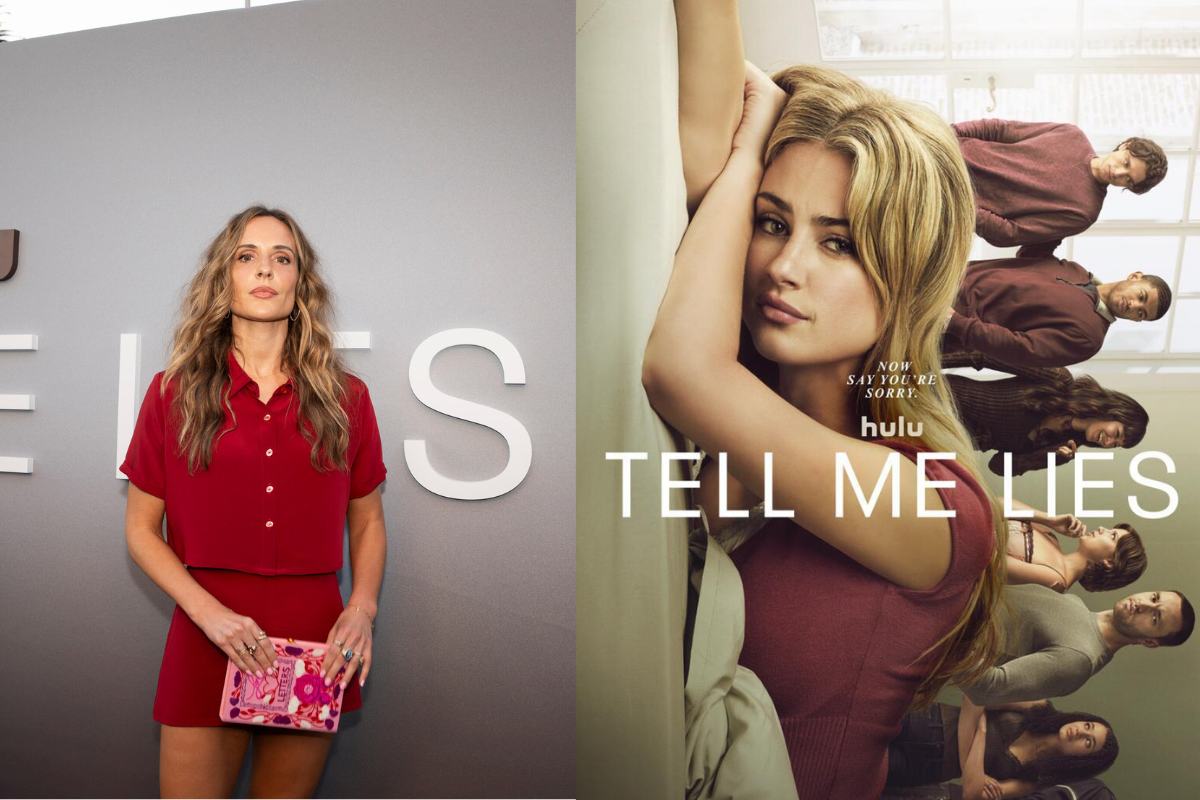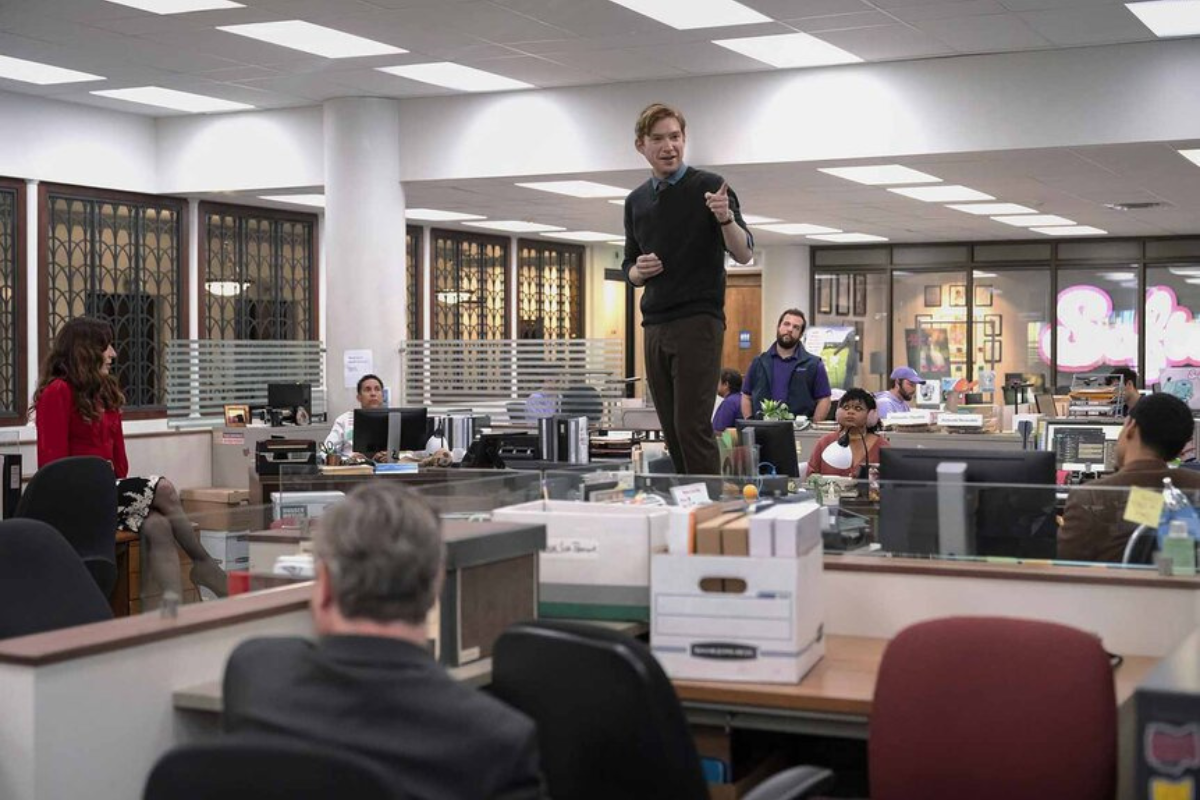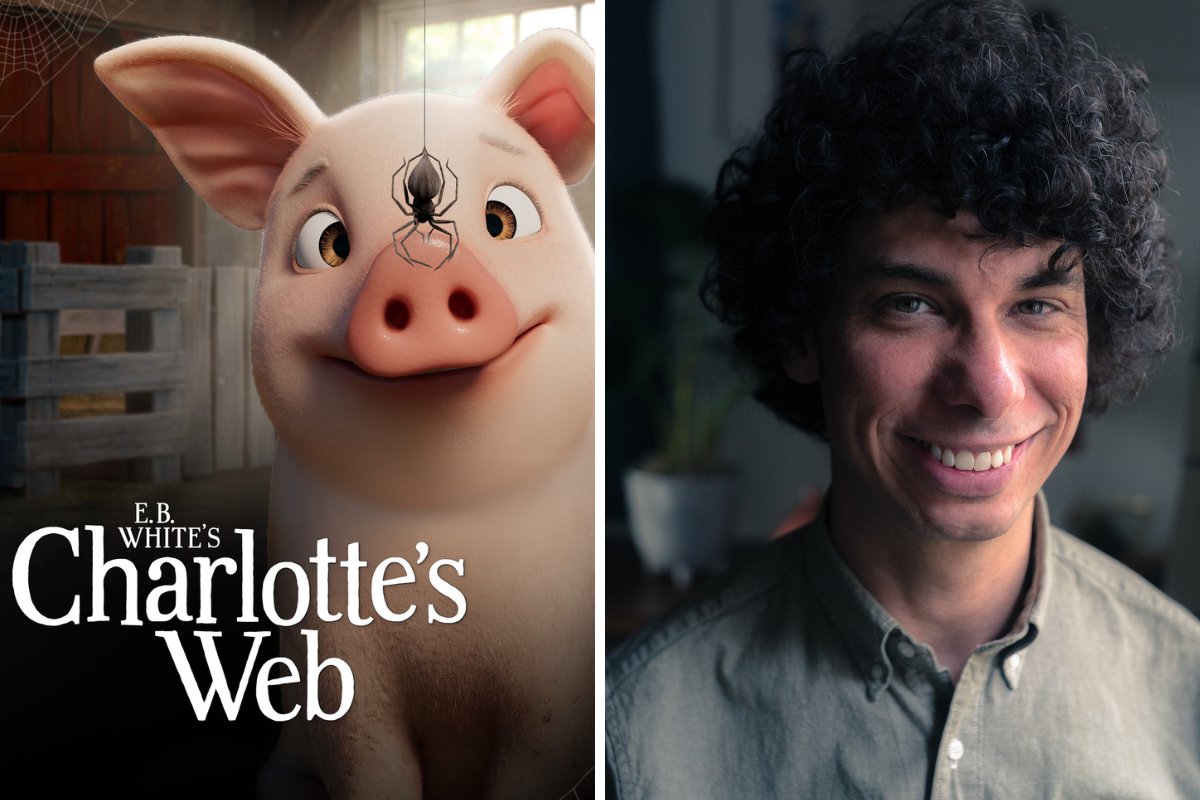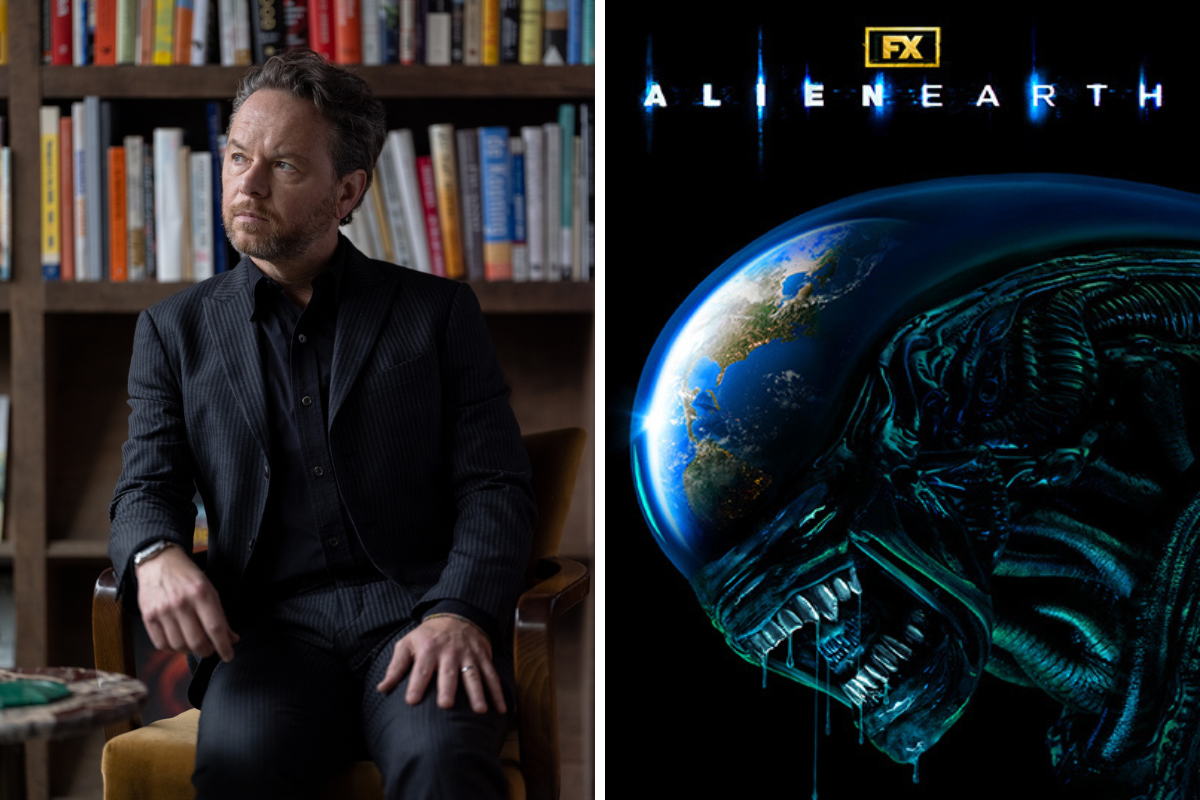A Love Story of Friendship: A Conversation with ‘Dying for Sex’ Co-Creators and Showrunners Elizabeth Meriwether and Kim Rosenstock
In this deep dive conversation with Kim Rosenstock and Elizabeth Meriwether, they share their process of honoring the podcast’s essence, the balance between humor and serious themes, and more!
FX’s Dying for Sex is inspired by the story of Molly Kochan, originally shared on a Wondery podcast created with her best friend, Nikki Boyer. After Molly (Michelle Williams) receives a diagnosis of Stage IV metastatic breast cancer, she decides to leave her husband, Steve (Jay Duplass) and begins to explore the full breadth and complexity of her sexual desires for the first time in her life. She gets the courage and support to go on this adventure from her best friend Nikki (Jenny Slate), who stays by her side until the very end. Also joining the cast are Rob Delaney, Kelvin Yu, David Rasche, Esco Jouléy and Sissy Spacek.
In this deep dive conversation with Kim Rosenstock and Elizabeth Meriwether, who co-created the show, they share their process of honoring the podcast's essence while creating a visual experience. They emphasized the importance of Molly's internal journey, the balance between humor and serious themes, and the love story between Molly and Nikki. They also stressed the value of collaboration with the podcast's creator, Nikki Boyer, and the need for deep immersion in the source material, plus so much more!
This interview has been edited for content and clarity.
This interview also includes minor episode spoilers ahead.
Sadie Dean: [start] How did this podcast come on your?
Kim Rosenstock: The podcast first came to Liz through a producer friend...it was her last meeting before COVID shut everything down – it was with Nikki Boyer, and she had this great meeting with her. And I think there was a bidding war. A lot of people love this podcast, and Nikki ended up going with Liz. And so, Liz had optioned it, but then a few months later, she was realizing she was going to have to go into production for The Dropout, and she was going to need to partner with somebody to make it. And so, she reached out to me, which I feel very, very fortunate for that.
So, Liz came to me in June 2020, around then, and was like, 'Do you want to listen to this podcast? It's really amazing. It's about this woman who's dying of cancer.' And I was like, 'That doesn't sound like something I really want to listen to right now.' It was a really dark moment in time. And then she was like, 'She's also having a lot of sex and like this sexual awakening.' And I was like, 'Yeah, sure, I'll definitely listen!' [laughs]
And so, I listened to it, and it totally caught me off guard. It was so much deeper and more profound than I expected it to be at the outset, and it was suddenly about, by the end, it was about literally everything. I was on the floor of my living room, just sobbing. And then I called Liz, and I was like, 'Yes, I would do anything to work on this with you.' So that's how I came to it.
Elizabeth Meriwether: Everybody, from us, down to everybody who worked on the show, I feel like the podcast was this thing, that it was like, as soon as you listened to the podcast, you just fell in love with these people and wanted to tell this story. Honestly, anybody who hadn't listened to the podcast that came in to meet on the show, I was like, 'You need to listen to it. You need to listen to their voices.' Because you kind of can't listen to it without feeling something.
It's such a moving thing to hear the voice of somebody in hospice describing what they're feeling and thinking about, and it feels like the gift that she gave us by doing that, to allow us into that moment. Because it's something that people just don't talk about that much, or they try not to talk about it, they try not to think about it. But I think everybody worries about it and wonders about it and is scared about it in the back of their brain somewhere.
So, for her to have the generosity of spirit to let us into that moment and allow us to try to understand what it was for her. It's just such a beautiful podcast. So I think that was always in our minds was: how do we honor her? How do we honor this story? And sometimes honoring her meant really raunchy sex scenes, and that was also honoring her. [laughs]
Kim: The podcast does this amazing thing where it's like, you think you know what it is at first, you're like, 'Two women talking about sex. OK, I've heard this before.' And then like Liz is saying it takes a turn into territory where you're like, 'I have never heard this.' You think the intimacy and the bravery is all going to be around discussing the sex, and then it's about discussing the dying process.
And actually, her bravery and intimacy, just completely go to another level. And you're like, 'She's letting me hear everything.' For us, I think a lot of it was like, OK, how do we make something that gives you the feeling of the podcast, but obviously we don't have the real person. It's not an audio experience. It's a visual experience. So how do we make our own version, while also honoring the spirit of this beautiful podcast that is unlike anything I think either of us had ever heard?
Sadie: When mapping all this out and honoring the essence of this woman and her story, how do you go about breaking the podcast and then breaking it down into specific episodes. While also choosing between, ‘We have to keep this, and this is OK to toss out’?
Kim: I will say it was a long process. It was by no means easy, because there is so much in this story, and we did have to decide, especially once we knew we were going to have eight episodes, we had to really make a decision about what was going to stay and what was going to go. And also the podcast, I remember there were times where let's beat out what the structure was of that first, especially the pilot, the first episode of that podcast. And the truth is, it does 800 things, because they can, because they're just telling a story, and they can go in all these different directions, and come back to the present, and we couldn't do that necessarily. And we did have to decide, ‘OK our show needs a launch - it needs a kickoff.’ She's going to leave her husband right out of the gate. That's not something that necessarily happened in the podcast, but it was what we needed our own entry point into this thing.
Elizabeth: This is something Aristotle talks about [laughs] but to have a --
Kim: And now you. [laughs]
Elizabeth: [laughs] It's really early in the morning to be referencing Aristotle, I'm sorry, but trying to find the box, trying to find the way to limit the story. It took a long time, but I think we landed on this first moment that she finds out that she has cancer. And it jumped out for us, the scene in the couple's therapist office, even though it's kind of mentioned, sort of in a semi-offhand way in the podcast, it was like, 'Oh, that's so funny and great. And feels like it's the tone of the show.'
Kim: It would be a great scene to watch, right?
Elizabeth: Yeah! It's this mishmash of comedy and drama. Those things that jump out as scenes. We built that pilot episode - what was hard was just kind of trying to translate the fun, sort of back-and-forth conversation into the story. But then the other big challenge was just how do we get inside Molly's head? How can we show this very internal emotional arc for her? That, honestly, there are moments of where her reality is very different than our reality. So it kind of felt like, OK that justifies some fantasy moments or some dream moments, or eventually we had a voiceover in, and then we took it out, and then we put it back in - justified, sort of going into those places a bit, because I think her experience of everything was so internal and also strange. She was living a life in a really strange way. She knew she was going to die within a few years. And so, it's like, how does that feel like?
Basically, once we kind of told ourselves it has to be Molly's internal journey as the engine of the show, then I think it helped kind of focus us and what needed to happen. And we made this kind of big decision early on that we didn't want - the structure of the podcast, which we said is beautiful - but it reveals her sexual trauma kind of later in the podcast, and that feels like it's all kind of like building to that moment. And we didn't want to do that, because it felt almost like too easy in a show to kind of just sort of reveal sexual trauma right at the end and then not actually deal with what it is, and how do you live with it, and how you experience it?
RELATED: The Soul and the Spine of What Made ‘Long Bright River’ with Showrunner and Co-Creator Nikki Toscano
So, we decided we wanted to move that to the beginning, so it's in the pilot. But it sort of took away a thing that we were building to. So we, in the writers' room, were like, 'What if we build to something that kind of didn't happen for Molly, but that we felt that she had been on the path towards, but died before she could kind of get there?' Which was really having this love and sort of intimacy with this other person. That's how those pieces kind of start coming into place.
In this show, you're telling the cancer story with the sex story, and every time, both of those things in every episode have to be aligned in some way. There has to be some moment where one of them really affects the other one. So, it was kind of also trying to figure out, like, 'OK, what's happening in her with her disease and her body, and what's happening in her body with pleasure and with finding her own pleasure. And where do those intersect?'
One thing that was huge that I think that we realized early on was that we didn't want - we both worked on New Girl, it's a show about friendship, but in that show, in every episode, there's a conflict between the friends, and it's resolved, obviously, because it's a sitcom. And sometimes, it's a very small conflict, arguably too small. [laughs] But this one, we realized early on that we didn't want to see them at odds in every episode or having some kind of conflict, because there was enough going on. There was enough that they were facing that they didn't need to be against each other. So that was kind of like rearranging our thought process a bit, because it was the conflict is not with the other character in the show, the conflict is with the outside world.
Kim: Something that drew both of us to this story was this idea that we're watching somebody, both her body is both falling apart, but on the inside, she's coming together, and she's healing tension between those two things. And also, this idea that has been explored a little, but we wanted to explore it further, like the sick body also being the sexual body. And what does it mean to feel pleasure while also experiencing pain? And all of the tensions that lie within all of those things, I think, when we were figuring out what stories we wanted to tell and which things needed to be in the show, I think that was always in the DNA for every episode.
And the other thing I just wanted to say was, I feel like the other North Star for us was this love story of the friendship between Nikki and Molly, and I feel like that for us, we start the show with the first person she wants to tell is Nikki, and I think of always that first episode is, like the proposal episode, where she's basically like, 'I want to marry you' - in our world, 'I want to die with you.' And then we go on this journey with them, this love story of this friendship, and then we take it all the way to the end.
Within that love story, we have other love stories happening, including this wonderful romance that she has with this sexual partner, but always, that love story with the two best friends, felt like, for us, the one that we wanted to make the through-line of the show.
And also, Nikki on the podcast was the interviewer, she was the sounding board, she was the person reacting to the stories. But I think something that was really exciting to us early on was really fleshing out Nikki as a character, and in our adaptation of this, making her journey just as full. That doesn't mean she got as much screen time, but making it feel like she had a full emotional arc as well just like the real Nikki did, and also really exploring what it is to be a caretaker and that journey. Because sadly, so many people are touched by cancer, but also just as many people, if not more, know what it's like and experience being a caretaker at some point in their life. And we felt like that would be a really resonant story.
Sadie: Yeah, Nikki is great, as are all the secondary characters too. Molly and Nikki's emotional journey, especially together, is really beautiful. Another great layer about the show is the it's not only a very serious subject matter, and we know how it's going to end buut adding that levity to this world --
Elizabeth: I was just about to say that, because we were talking about the structure of the episodes. It was like mind-boggling. We were like, 'Wait, this is a half-hour comedy?' [laughs] ‘How do we do this?’
Kim: Yeah, we'd have to continue to remind ourselves. [laughs]
Elizabeth: It helped, because I mean, Kim and I worked on New Girl for so long, and comedy structure is in my bones at this point a bit, so it actually helped again, to kind of find the box of the episodes. Because all these themes and emotional things are happening, but what is the funny thing that they're building to? [laughs] In some ways, like the set piece, not every episode has a set piece, but what is kind of like the comedic issue or problem, you know? And I think that actually helped me make some of these bigger dramatic themes help make it manageable from a storytelling perspective, where you're like, 'What is the funny thing that we're building to? Or what is the funny reveal that we're building to?' Especially, I think it was the last episode, it was like, 'What are we gonna do?' I was like, 'What is funny about this?' [laughs]
Kim: And then we found the hospice nurse!
Elizabeth: It's such a sitcom-like moment where she comes in at the wrong time. [laughs] It's a good way of getting people to actually engage with these darker themes. Because I think, if it doesn't have that, then it's just way too brutal on the audience. It actually, I think makes you think about it more, because you feel like you're taken care of a little bit, and there are things that are genuinely funny.
Probably the moment that I'm most proud of in my whole writing career, is in the sixth episode after she tells a story of what happened to her when she was a child and it's one of the most intense moments in the show. And then she farts [laughs]...it's hard to explain...
Sadie: It feels like an internal and external release all at the same time.
Elizabeth: Yeah!
Kim: It is about the body in every way in that moment - it creates comedy. The other thing that I always felt like, and I think Liz does too, is we wanted to make this story feel really as human and honest and real as possible, and life is funny and life is absurd. And actually, it wouldn't be honest to tell this story without humor, because the real Molly...that's why she wanted Nikki around, because she could laugh with Nikki, she could tell jokes about it, she could have this gallows humor and not feel self-conscious, or not feel like she had to be sick and dying all the time. She could just also be a person who's appreciating the absurdity of it all. And I think that not only is it absurd, but also humor is a way through pain, and so it's also a way through for all of us. And it felt like the most honest choice as well.
Sadie: Any advice you may have for writers who are looking to adapt a podcast?
Elizabeth: This is a very obvious one...but you have to really be in love with the story. Because it's such a long process. And you kind of have to go inside and outside of it. And you really have to kind of immerse yourself in the thing you're adapting, and I think if it's not something that you kind of like in your core, are responding to and love, then it's probably not worth it. But it's always, for me, a thing that I can't get out of my head, or keep coming back to, and then it sort of tells me, like, 'OK, that's something I need to be writing.'
I think that podcasts are great to adapt because they're already broken into episodes. You shouldn't follow the structure of the podcast exactly, but it has done the work of kind of thinking about it in episode form already.
And then the last thing would just be the podcast exists, so your piece needs to be something different - it needs to be adding to it and building on it, not just doing exactly what was in podcast.
Kim: The one thing I would add is, I feel like throughout the process, it was a constant back and forth between deeply engaging with the podcast, almost on, like an archivist, historian level - going through the transcripts and then throwing it away, and just writing and not thinking about it. But I feel like whenever, personally, as I was writing, whenever I got stuck, I would pull up those transcripts, and I would always find something, like some gem that I had maybe missed the first time, or something that I was thinking in a new way because of a path we decided to go down. So now this thing that maybe hadn't stuck out to me before was like, 'Oh, this actually does fit into the show, because it fits into this story.'
But I was amazed by how many times the podcast, or the transcript had some gem, or something in there that ended up being extremely useful that if I hadn't read it like 1,000 times I maybe would have missed - I did start to listen to it differently as we continued to make the show.
I have to say, we were so fortunate. I don't know if this is advice, but Nikki, who made the podcast, had so much trust in us, and both she had so much trust in us, but also was available to us whenever we needed her as a resource to give additional information or to provide more background or more details. And I would say, if you're lucky enough to have somebody like that who is both a generous collaborator and a willing resource - to take advantage of it. Because I think at first it was like, 'We want to make our own thing. We don't want to feel like we're making a biopic, or we're just making the movie of this podcast.' But then as we went along, we were like, 'Oh, it's amazing that she is our collaborator and wants to work with us on this,' because she does have a lot of information, and she lived this experience and she has gone through the process of trying to tell this story, so she has sort of gone to the mountain top, and now we're going to the mountain top, and so it's nice to talk to the other person that's been up there.
FX’s Dying for Sex premieres Friday, April 4 on Hulu.







